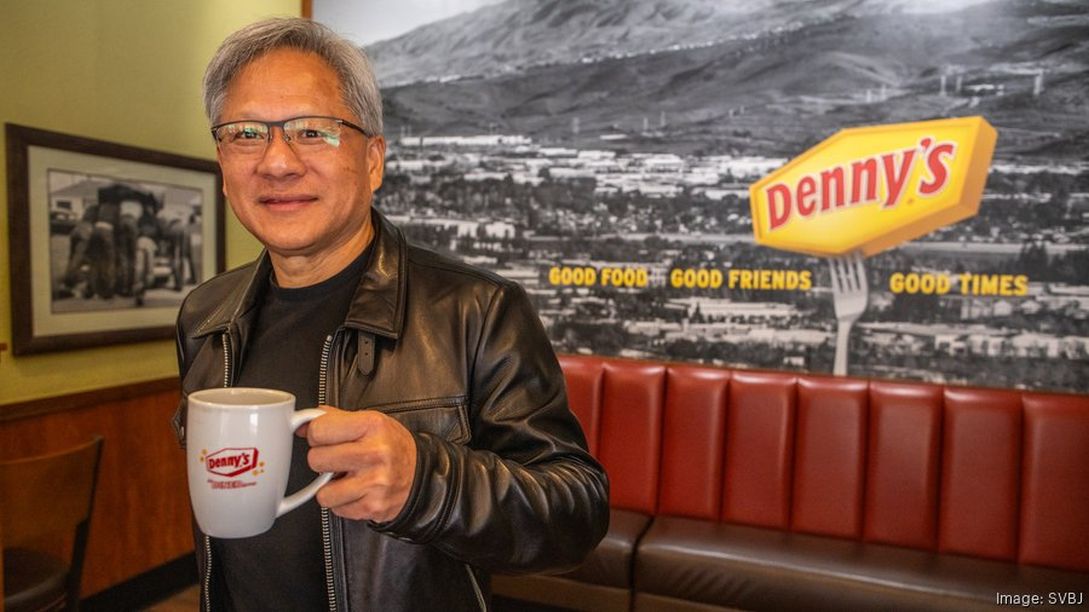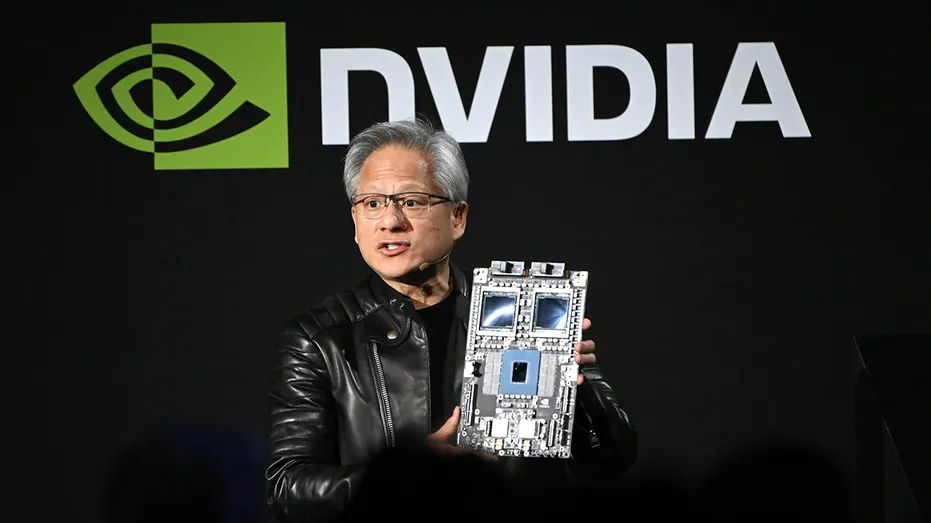Completely satisfied Independence Day. On July 4, 2025, America marks 249 years since breaking away from British rule—a combat for freedom that reshaped historical past. However the true legacy of that freedom is what it makes potential as we speak.
Like a child scrubbing diner flooring who finally ends up constructing an organization value near $4 trillion.
That child? Jensen Huang.
The Taiwanese-born immigrant who as soon as cleaned bathrooms at a Denny’s now runs NVIDIA, probably the most influential tech firms on the planet. As of July 4, 2025, NVIDIA holds a market valuation just shy of $3.9 trillion, making it probably the most worthwhile firm on the planet and inserting it on the high of the worldwide market.
His story isn’t simply spectacular—it’s a reminder of what can occur when somebody’s given a shot. Constructed on grit, relentless work, and long-haul considering, his rise is a contemporary tackle the American Dream—proof that it’s nonetheless alive and effectively.
The Immigrant Who Constructed a Trillion-Greenback AI Empire: Jensen Huang’s Story
Born in Tainan, Taiwan, in 1963, Huang’s early years had been removed from predictable. His dad and mom moved to Thailand searching for alternatives. When political unrest hit the area, they despatched Jensen and his brother—ages 9 and 10—to the U.S. alone. The boys landed at Oneida Baptist Institute, a strict Christian boarding college tucked away in rural Kentucky.
Scrubbing Bathrooms and Combating to Belong
Jensen didn’t converse a lot English. He was bullied for his accent, for his thrift-store garments, for simply being totally different. He as soon as described these years as a few of the loneliest of his life. At night time, he cleaned loos in native diners, working jobs most youngsters his age didn’t even take into consideration.
“To me, no activity is beneath me as a result of, bear in mind, I was a dishwasher [and] I used to wash bathrooms,” Huang said in a March 2024 interview on the Stanford Graduate College of Enterprise. “I’ve all the time believed that crucial factor is to indicate up and do your finest each single day,” Huang added.
By highschool, his household had moved to Oregon. He saved working. Stored learning. And ultimately earned a level in electrical engineering from Oregon State. He later acquired his grasp’s from Stanford.
Nvidia: A Startup Born in a Denny’s Sales space

In 1993, Jensen was 30 and already considering massive. One night time, inside a Denny’s in San Jose, he sat throughout from two engineers—Chris Malachowsky and Curtis Priem. They sketched concepts on napkins and fashioned what would develop into NVIDIA. On the time, graphics playing cards had been area of interest. Gaming was small. Their concept? Construct chips that may deal with intense visuals for PCs.
Individuals laughed it off. Buyers had been skeptical. PCs had been sluggish and no one noticed graphics as a severe enterprise. However Jensen believed one thing else solely—graphics chips would sometime do way over make video video games look good.
He was proper.
In 1997, the corporate almost went underneath after a key shopper deal fell aside. Payroll was due and the checking account was skinny. Huang hit the street, pitching traders continuous. One deal got here by way of simply in time.
Two years later, NVIDIA launched the GeForce 256. It was promoted because the world’s first GPU. And it modified every thing.
In September 2023, Jensen returned to the Denny’s the place a trillion-dollar concept was born. Alongside Denny’s CEO, he unveiled a plaque marking the sales space the place NVIDIA’s journey started—and introduced a brand new contest to spark the subsequent massive breakthrough.

Denny’s CEO Kelli Valade was joined Tuesday by NVIDIA CEO Jensen Huang to unveil a plaque on the Silicon Valley Denny’s the place NVIDIA’s founders hatched their concept for a chip that might allow real looking 3D graphics on private computer systems.
Jensen’s Model: No Frills, No Fluff
Inside NVIDIA, Huang isn’t some distant government barking orders from a nook workplace. He writes 5 a.m. emails. He sketches chip designs on whiteboards. He is aware of engineers by title. And when the corporate ran right into a major problem in 2008—a defective chip that would’ve broken their popularity—he didn’t flinch. He moved into the workplace and labored aspect by aspect together with his engineers to repair it. They solved the issue in 100 days.
“He’s not simply the boss—he’s considered one of us,” a former NVIDIA engineer as soon as mentioned.
Huang has been CEO for the reason that firm was based greater than three a long time in the past. That form of consistency is uncommon in Silicon Valley. However he stayed. And constructed.
At NVIDIA’s headquarters, he hosts common pizza nights the place junior engineers can converse freely and pitch concepts. That flat tradition—the concept everybody can contribute—is an enormous a part of what’s saved NVIDIA transferring ahead.
However what actually units him aside is how a lot he believes in individuals, even once they battle.
“I’d relatively enhance you than quit on you,” Huang once told Stripe co-founder Patrick Collison.
“While you hearth any person, lots of people will say ‘it wasn’t your fault,’ or ‘I made the improper alternative.’ However I used to wash loos and now I’m the CEO of an organization. I feel you may study it… I don’t like giving up on individuals as a result of I feel they will enhance.”
He jokes that he prefers to “torture them into greatness” relatively than allow them to go. And he meant it.
Betting on AI Earlier than It Was Cool

In 2006, NVIDIA launched CUDA, a software program platform that lets builders use GPUs for normal computing duties—not simply graphics. Most individuals didn’t get it. Critics rolled their eyes. However Huang pushed ahead.
Years later, CUDA grew to become the muse for coaching massive language fashions and generative AI. ChatGPT? Tesla’s self-driving system? Most cancers analysis instruments? All of them depend on NVIDIA chips constructed to deal with large knowledge processing duties.
In 2024, the corporate hit a $3.3 trillion market cap and briefly grew to become probably the most worthwhile firm on the planet. That put Huang’s private internet value north of $130 billion. He’s been known as the “godfather of AI”—a title he didn’t ask for however hasn’t denied.
“We’re originally of a brand new industrial revolution, the place AI will amplify human ingenuity,” he mentioned throughout NVIDIA’s 2024 GTC keynote. He sees a future the place cities get smarter, medication turns into extra exact, and machines assist with on a regular basis life.
From Bathrooms to Trillions
What makes Huang’s story stick isn’t simply the greenback indicators or the high-profile product launches. It’s the hole between the place he began and the place he landed.
He scrubbed greasy diner flooring. He acquired mocked in class. He labored by way of loneliness, low expectations, and cultural obstacles. And he constructed an organization that now touches nearly each sector—gaming, automotive, analysis, finance, and past. This isn’t about luck. It’s about seeing issues others missed. It’s additionally about staying within the sport lengthy sufficient for the remainder of the world to catch up.
This story reveals that battle isn’t one thing to keep away from; it’s the fabric success is constructed from. When somebody like Huang goes from cleaning toilets to reshaping international expertise, it forces you to rethink what’s potential.
What This July 4th Means
On a day that celebrates freedom and risk, Jensen Huang’s story lands with additional weight. It reminds us that success doesn’t require good circumstances—it simply wants perseverance, imaginative and prescient, and a ridiculous quantity of grit.
So the query isn’t simply how one man went from scrubbing bathrooms to steering AI’s future.
The higher query is: What dream are you prepared to chase, irrespective of the place you begin?
Completely satisfied Independence Day!
🚀 Need Your Story Featured?
Get in entrance of hundreds of founders, traders, PE companies, tech executives, resolution makers, and tech readers by submitting your story to TechStartups.com.






